Legends uncovered: R.B. Ramesh (1/3)
There have been many interviews done with India's best coach R.B. Ramesh, but none so detailed as the one by ChessBase India's editor Niklesh Jain. While the Chennai Open 2017 was in progress Niklesh went to Ramesh's coaching academy and spoke at length with the legendary trainer. We have the 22 minute video in HD quality, as well as the entire transcription, in which Ramesh gives you pearls of wisdom which will prove useful to a chess player of any strength. Miss it at your own peril!
“Chess is a foolish expedient for making idle people believe they are doing very clever, when they are only wasting their time” – George Bernard Shaw
This quote of the 1925 Nobel Laureate, George Bernard Shaw can leave any chess player utterly offended. Upon a deeper thought, however, he seems to make sense. Like science helps in the advancement of human knowledge, literature reflects people and society, medicine saves and/or prolongs lifespan, what does chess achieve per se? Is it truly a foolish expedient?
GM RB Ramesh, is one of the most successful chess coaches from India. Besides having served as the coach to the Indian team for the 2014 bronze winning Olympiad, he has tutored some of the most incredible talents like Aravindh Chithambaram, R.Praggnanandhaa and many others. His other achievements include title British Chess Championship in 2002 and the Commonwealth Championship in 2007. In an interview with Niklesh Jain from ChessBase India, Ramesh discussed how he started playing chess, how chess was different in those days, how he met the love of his life over the chess board, his passion towards teaching chess, his students, future plans and a lot more. His love for both chess and chess teaching is simply awe-inspiring and he tells his tale in such a heartwarming manner that it reaffirms the fact that chess does indeed serve a purpose. It helps people think, gain knowledge, be happy and spread that happiness and knowledge. It gave him a purpose so fulfilling that rewards like fame or money looked miniscule (but of course, followed on their own accord). Just as in his chess games, in life too, he dared to take risks and make his dream real. And all he had to say afterwards was “Chess is my life”. Do take a look at this thoroughly delightful interview.
Entire video in HD quality
Interview with R.B. Ramesh
NJ: Hello Sir!
RB: Yes, hello.
NJ: What is the meaning of chess in your life?
RB: Okay you can say… you can say chess is my life. Though this has been said by many people before and I firmly believe in this. I started playing chess when I was 12 years old. And since then I have been with chess as a player for almost twenty years, and I have been a coach since then. Now I’m going to be forty one. So all my life, I have lived with chess. I’ve tried to do other things – like working in an oil company – but it did not give me much satisfaction. So I quit my job and this is what my life is about.
NJ: How did you start playing chess?
RB: When I was very young – around 10 years old – my elder brother, GB Prakash was already a very strong player. He was among the top five in the National Juniors at that time. And Viswanathan Anand was also beginning to become very strong. Around November or December 1988, Anand won the World Juniors and became a grandmaster. So that was a big inspiration for me. And I was also looking at taking up some sport. But I was already 12 years old, which is a little late by age. But I thought let me anyway give it a try. And when I started playing tournaments, I realized I had potential and I also liked the game very well. So that’s how I started playing the game. My neighbors taught me the basics, but I already had a foundation in the form of my brother at home.
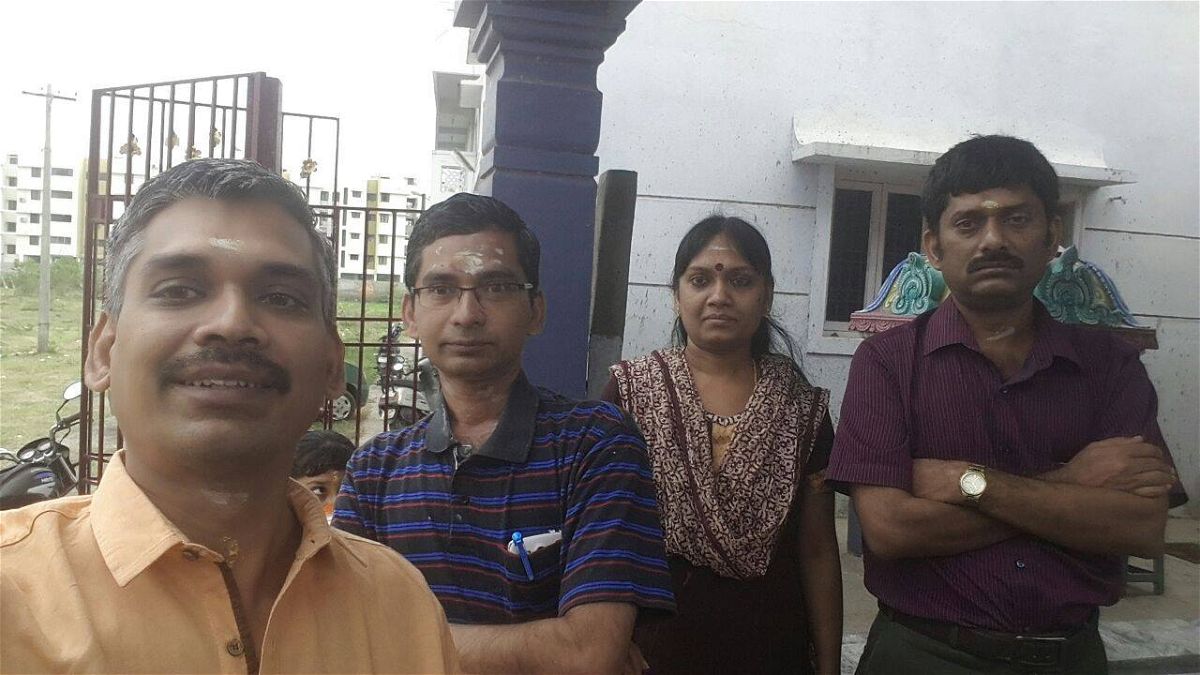
NJ: These days, parents support their children. When you started chess, what was the atmosphere?
RB: These days, it’s completely different because the parents, many- a-times when they bring their children to the game, they already want them to be successful. They want their children to be grandmasters and world champions and so on. So they already have very big ambitions without even knowing whether the child has the talent, the potential to work hard and so on.
But in our time it was not like that. My parents just wanted me to play chess because I liked to play chess. That was the only reason they let me play chess. And we did not have any ambitions – like to be in the national team, to become an International Master or a grandmaster – we never thought about those things because there were not many strong tournaments in the country. The only international tournament in India at that time was, I think, the Goodricke Open which was held every year from February 6 to 16 in Calcutta – same date, same place! That was the only international exposure we could get. So we never thought we could become International Masters or grandmasters. That only changed much later.
So until I was 20, I played chess only because I because I liked to play. There was no pressure and that let me be creative in my approach to the game and also take risk, try new things. But these days, people are madly going after results and they don’t want to take risks or try creative things. So, I think, that’s a big difference.
NJ: Tell us about your love story and how, from a coach, you became a husband.
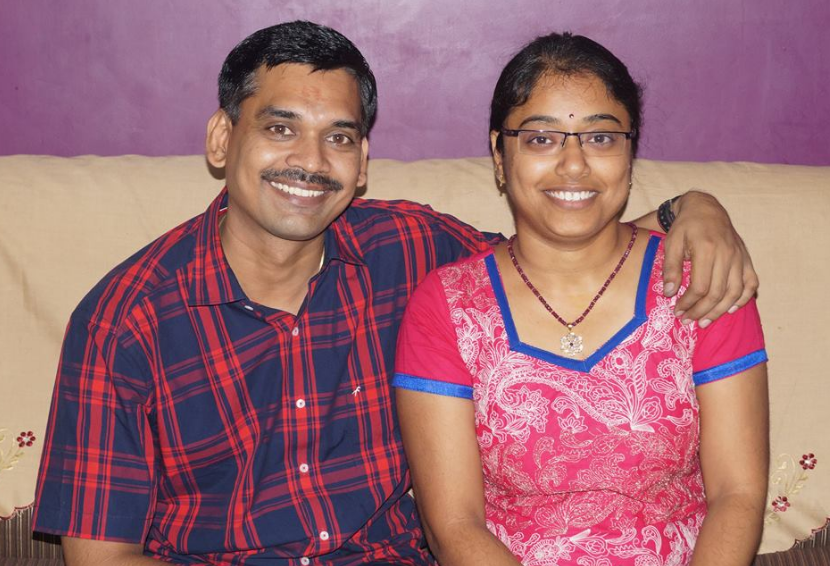
RB: (Laughs) Okay, I knew Aarthie since she was like 10 years old. When I was around 14 or 15, I played a tournament in Sangli – the Sangli Open. I was playing in the Under-16 category and won the tournament. So that was my first big break outside of Chennai. I already thought of myself to be a very strong player. I came back to Chennai very proudly.
The next day, there was a weekend tournament in Chennai. And my first round opponent was Aarthie. She made a mistake in the opening and I wanted to punish her by playing a brilliant sacrifice. I gave a bishop or some sac and there was a simple defence. I lost the game very badly. I felt so bad that I withdrew from the tournament immediately. I thought how I could lose to a small girl! So I did not take it in the right spirit. That’s how I met her for the first time – over the chessboard.
And then in 1998, her parents approached me to train her. I was also quite young at that time. I thought I can make some money and spend it on my chess career. The next year, in 1999, she won the World Under-18 Championship in Spain. So in just one or one and a half years, she started showing some big improvements. That was very satisfying for me and I also realized that maybe coaching is an area that I am good at. That was my first experience and it was quite successful. Since then we were working a lot and we fell in love with each other and got married ultimately in 2003.
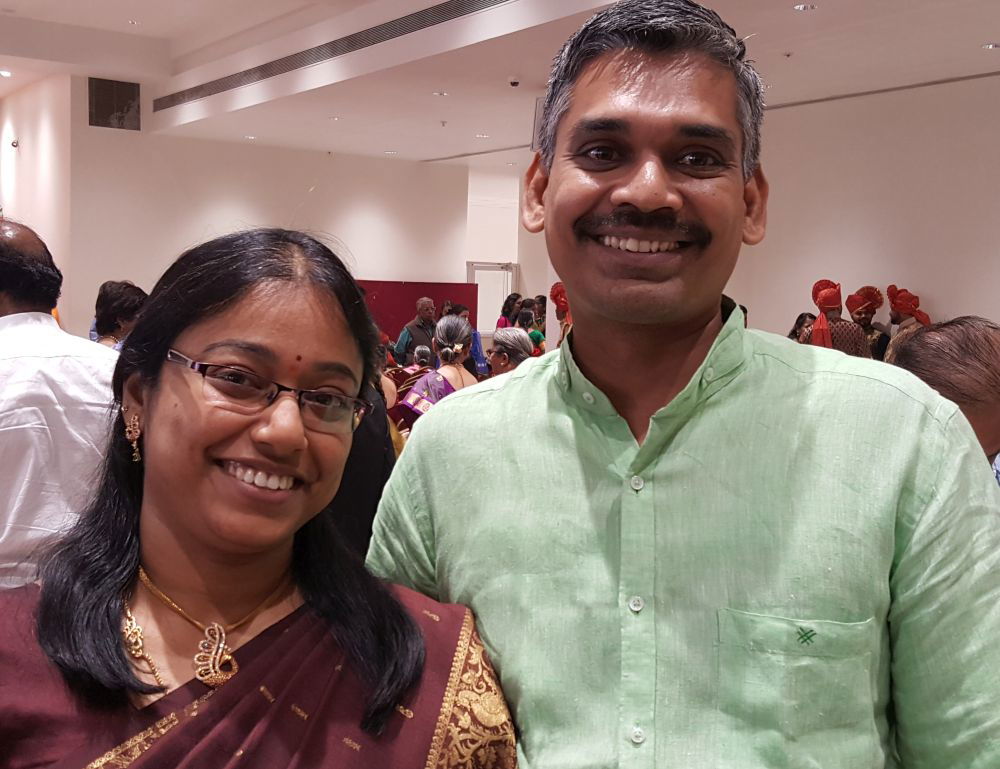
NJ: What has been Aarthie's contribution in your life?
RB: I would say at least whatever I have achieved as a player and as a coach is mostly because of her. She takes all the responsibilities – of running the family and the academy. A lot of issues come up every day. Once we set up the academy, she was the one who took care of handling the parents, all the administrative issues… she takes care of everything. She takes care of the children, she runs the family, does all household work. I don’t have to feel the pressure of handling those things; so I could fully concentrate on my passion and my job, which is teaching chess.
And when I was a player, she was also a big support to me. I had to travel a lot – to different parts of the world. For more than half the year, I would not be at home. If someone marries a non-chess player I don’t know how easy it will be for them to live without their husbands who are travelling all the time for more than half the year. So being a chess player herself, she was able to understand that I had to do it for my career.
And later when I decided to quit my job at the Indian Oil Corporation and start this academy, we had absolutely no students. Probably we had one or two students when we started this place. It was a big risk because I had a good job and I was quitting it to start coaching. But she was fully supportive of me. She said, “Okay, we will run the family with what we have. You don’t do it for money; do it sincerely because you like to do it.” That's the freedom she gave me. That way I did not feel the pressure that I have to earn and support the family. So I could fully focus on coaching and doing it because I wanted to do it. I don’t know how many wives will do that. But she did it for me. I am very grateful to her.
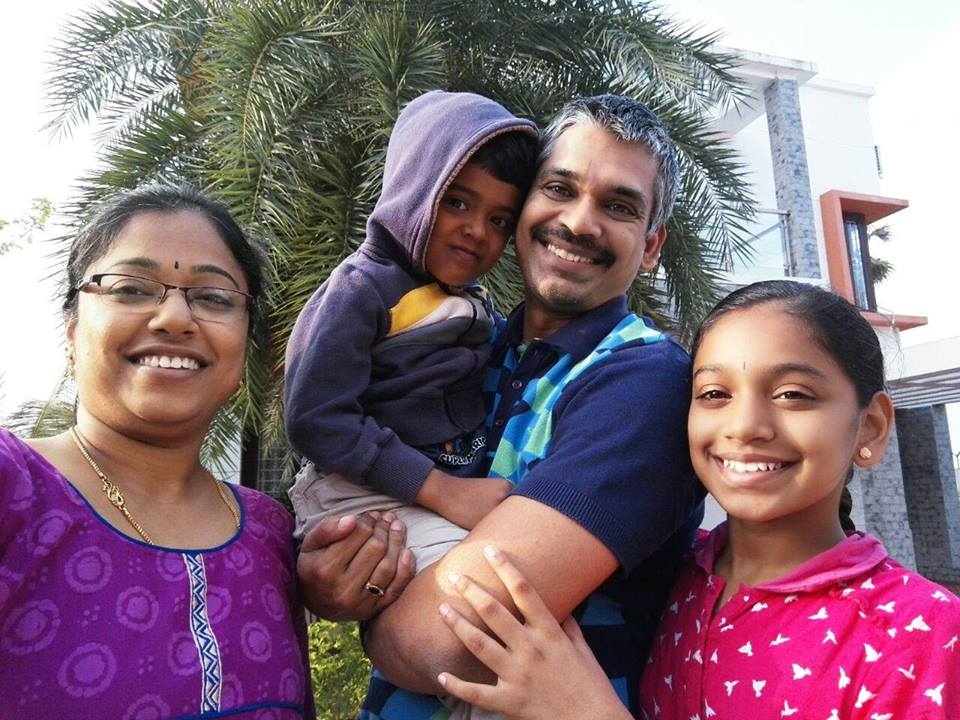
NJ: You have already achieved a lot of fame as well as success in life. What is it that you would still want to achieve?
RB: As I mentioned already, I’m not into chess for fame or money or success. I think that’s the least important issue for me. I believe if we feel we are good at something and we like it, we should do it. No matter if we get the reward or not… rewards in the sense… in the form of money or recognition or fame or whatever. The biggest reward, I feel, is doing your duty and doing it well. That gives immense satisfaction. That is the reward I am looking for. And I am getting it every day. So I am happy with my decision.
NJ: As a citizen of India, what is it that Ramesh would like to contribute?
RB: My initial plan when I quit my job was to do coaching until I am 45 – that is, another 4-5 years from now – and then I want to probably do coaching for free. I don’t want to charge any fees. Once I settle myself financially well, I don’t want to do it for the money but for the passion and for sharing knowledge. That is one aim I have in mind. And the other thing is that I want to slowly move away from chess and get into social service activity. That is another of my passions. It’s only that coaching is taking too much out of me. I have to start my classes early in the morning until night. So I am not able to spend enough time with my family, my kids and all that. I want to spend more time with my family as well. So after a few years, I would probably look at some other avenues.
NJ: Which life did you enjoy more, as a chess player or as a chess trainer?
RB: That’s a very tough question. I have enjoyed both a lot. But there was more pressure as a player because my career was always ‘up and down’. It was never ‘up up up’. I would do very well in some events and not so well in others. So it was more difficult as a player.
As a coach I have a different type of pressure. One, the performance of the students can affect us also. If they don’t do well, we cannot be peaceful. So all the time at the back of the mind I am thinking what should I do to help a player come out of bad form; what else do I need to change in my approach, change in my teaching. It’s a different kind of pressure. But nowadays, I have realized that it is the expectation of the self which is putting us under pressure and not allowing us to give our best. So I try to teach my students not to be so emotional, and try to handle the results in a more calm way, in a more matured way. That is the reason, I believe, my students are performing well – because they don’t play for results alone. They know that if they work well, if they improve well, if they’re sincere, if they’re honest, if they are hard-working, they will ultimately get the results. They’re willing to be patient. So, that doesn’t put too much pressure on them in every game they play.
NJ: Sir, how did you and Aarthie come up with the idea of Chess Gurukul?
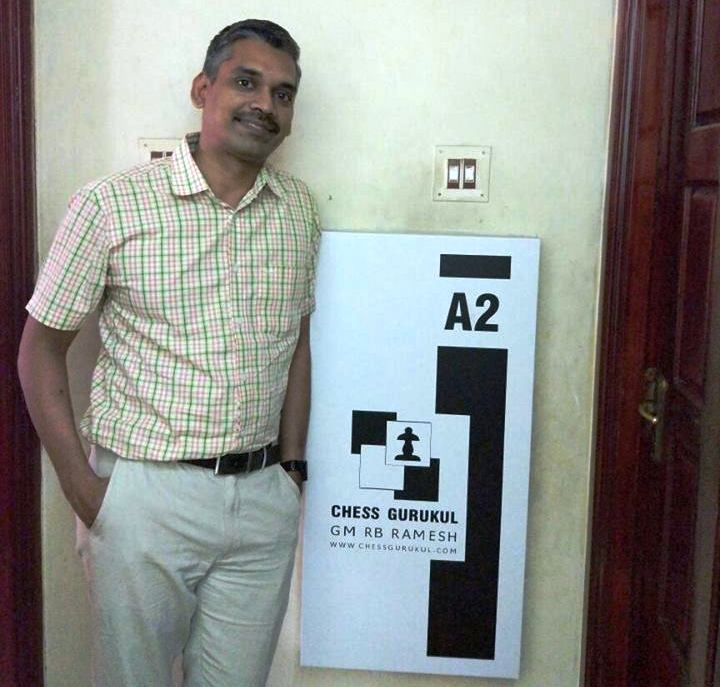
RB: When I was working with the Indian Oil Corporation, they were very supportive. They gave me opportunities to play abroad; to play in good tournaments in India. They took care of all of my expenses. But still, I had to go to office for half-a-day, come back at 2 or 3’o clock in the afternoon and I would not have enough time to be able to practice to be a good professional player at the top level. I had some other issues as well. So I felt I wasn’t having a good time with my life; I wasn’t doing what I wanted to do. And what I was doing was not giving me happiness.
I felt, I needed some change in my life and we were discussing that I should probably change my career. And it was a very big decision because there was going to be no fixed income for the family; and we already had a small girl child. So we were discussing this lot. And we finally took the decision that we’ll go ahead and do it. Luckily, we got this flat – which was newly built at the time, in 2008. And the owners were known to us. So we got a place just across our house. I was very lucky to get a good place... calm, peaceful... where I could teach the kids without disturbance. So everything slowly fell in place.
NJ: How do you select players for Chess Gurukul?
RB: I don’t have any selection process. My only criterion is that the child should be interested and should be ready to work hard. Strength or any other background does not matter. It’s mostly the child’s interest in the game. And when I say interest, one might think that almost all children have the same amount of interest. But from experience, I can say that it is not the case. Few children are very very interested in the game, very passionate and they are really willing to work hard. Work hard, not in the sense of the amount of time. It’s not about 5 hours of chess or 8 hours of chess. That many kids can do. But working sincerely in the sense that they really try to learn; they really try to understand what I am trying to teach. And they understand that they will really have to go through some difficult moments and they will improve. It’s interesting to work with such kids.
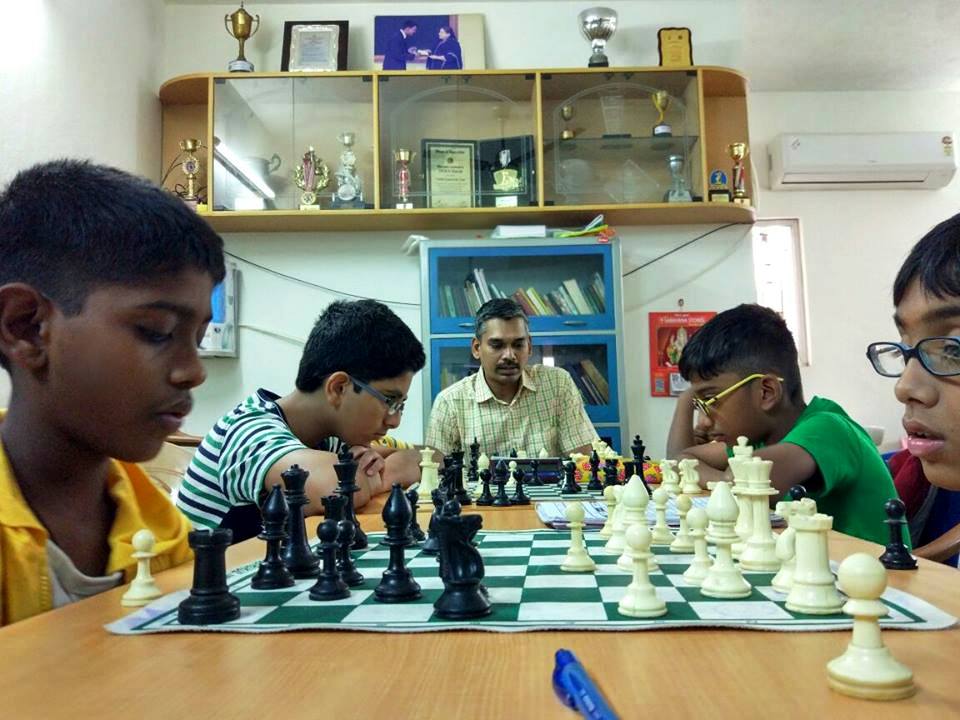
NJ: I know this is a tough question. But if you were asked to name a student who was miles ahead of others in terms of talent, who would it be?
RB: Okay, as you mentioned, it won’t be fair if I put one student above the other. But if I look at it purely from the professional viewpoint, I would say that among the kids whom I have worked with, Praggnanandha, obviously, is extremely talented and that too for his age.
He is almost a baby I would say in all other things. When he comes to the classes, as soon as we finish the games, we would play hide and seek or running and catching. It is like that. So every day, that’s how our classes go when we take breaks. So, he’s too young; but when it comes to the game, he is very mature, extremely talented and he has a fantastic memory. It’s a big challenge for me to choose the right material for him because if I show him a game played in the last two or three years, he would immediately tell me, “This game was played between Aronian and Wesley So, in so-and-so tournament… and on the 35th move he will play Knight to g6…” and things like that. So he will know all the important moves played in every top game. Because I’d told him when he came to me that he needs to keep track of what is going on at the top level; what style the top players use in their games; what openings they choose. “Ideally you have to see some five to ten games,” this is what I had told him probably 3-4 years ago. And now he sees around 50-60 games every day that were played that day. So he sees around all the top players’ games and he also feels he should remember the games because when I show the games, he wants to guess the moves correctly before others. That also motivates him to not just see the games but remember them as well. He has a fantastic memory and is extremely talented.
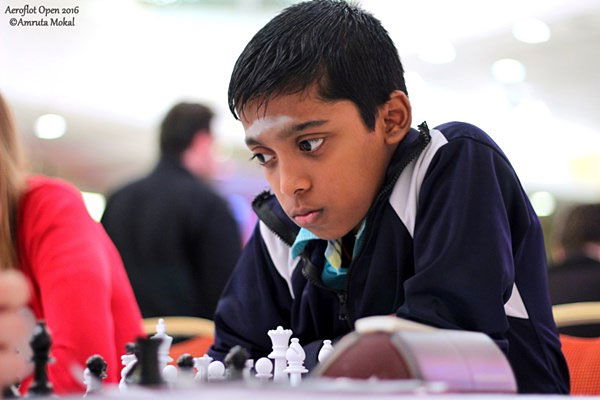
And the other player, I would say, is Aravindh Chithambaram. He comes from a very tough background. He is not very hardworking at home, but when he comes to the class, he is extremely hardworking. You can just give him any amount of work and he will handle it without any complaints. He is also extremely talented and without too much hard work, he has been making progress consistently.

And there are many other kids. Currently, I am working with Rakshita Ravi, Divya Deshmukh, Bharat Subramanium, Trish Karthik, Rahul… there are a few kids like this, who are under the age group of ten and eleven, and they also have similar qualities which I mentioned. They are also very hardworking, very talented. I think all these kids have a very good future.
NJ: As the Indian team’s trainer at the Olympiad, how would you rate the team’s recent performance?
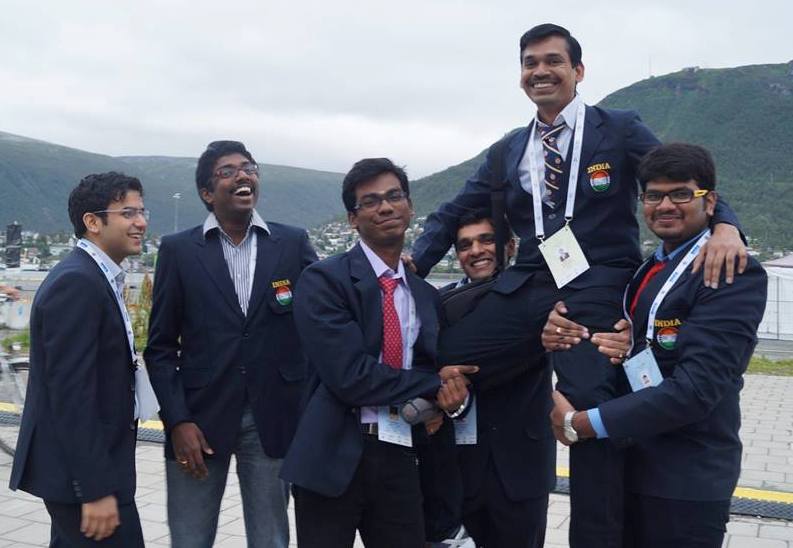
RB: I think we are becoming stronger and stronger with each Olympiad. I’d say, with each year. When we played in the Tromso Olympiad, many people were saying – many reporters asked – that we have a very young team, with hardly any experienced players apart from Sasikiran… because the players were Lalith Babu, Adhiban, Sethuraman, Parimarjan Negi and Sasikiran. And for everyone else apart from Negi and Sasikiran, it was an inaugural Olympiad. So we were not really sure if the players will be able to handle the pressure since they don’t have experience at that high level.
But I felt, even though we lacked experience – and all players were not even rated above 2600, Sethuraman and Lalith Babu were below 2600 – these players were hungry for success and were looking for opportunities to play with stronger players. And the Olympiad would be a great platform for this since if we played well, we’d have been able to play stronger teams consistently. I was very hopeful and getting a medal at the Tromso Olympiad was ultimate happiness for me because it was the first medal for India at this level.
But even more satisfying was the current Olympiad because we were playing on the top boards. We played all the top teams in the tournament except China because they were in bad form and we could not meet them. But apart from that, we played with USA, Russia and all the other strong teams and we hardly lost any match. In fact we were at 6.0/6 initially. So both of these Olympiads, the first one from the result perspective, and the second from the performance, were very satisfying. Now we have earned respect from other top countries.
NJ: How do you ensure that you stay relevant in the age of information boom?
RB: That’s not easy (laughs) because at the back of my mind, I have some conflicts. In my heart, I want to go into some social service area as soon as possible. But as a profession and passion from a young age, I have been with chess throughout my life. I read a lot on other issues and that takes up a lot of my time apart from chess.
During the classes, I try to keep myself updated by watching the games live every day and look at them from a coach’s perspective because I try to see which moments will be interesting to show to the students – in this game they played a very good rook and pawn endgame; in this one there was a good attack; in this game he got into trouble and fought well to save the game or saved a bad position. So I try to find good training material from all the recent games and likewise I also try to see games from the masters of the past. So my constant endeavor is to keep producing good material for training. And that is not easy because on a daily basis I have to see games and get the material. That takes a lot of effort.
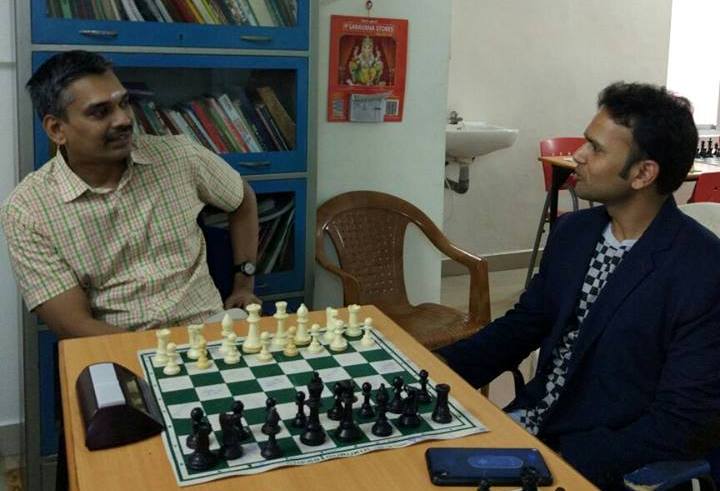
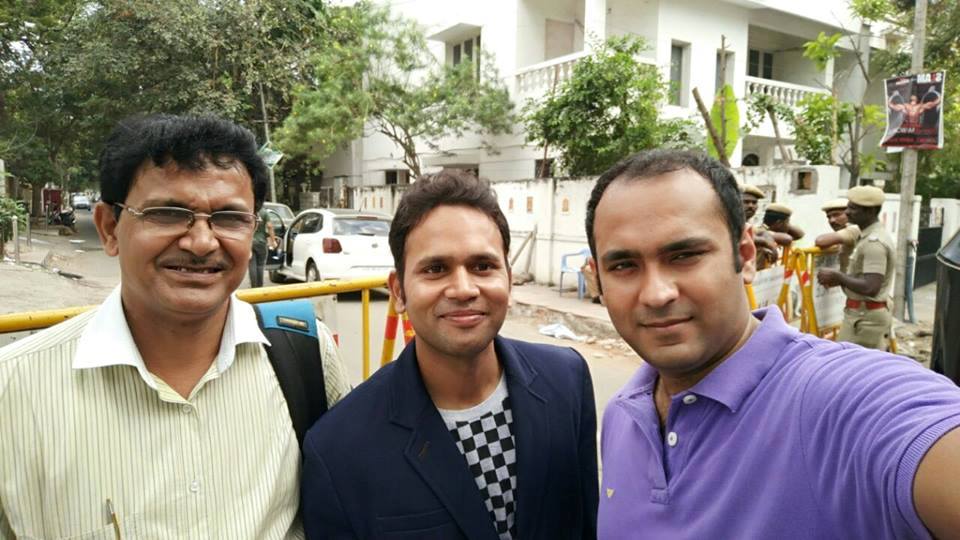
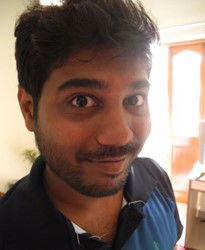 A special thanks to Aditya Pai who transcribed the entire interview.
A special thanks to Aditya Pai who transcribed the entire interview.
This is a three-part interview. Part II will be released shortly.

